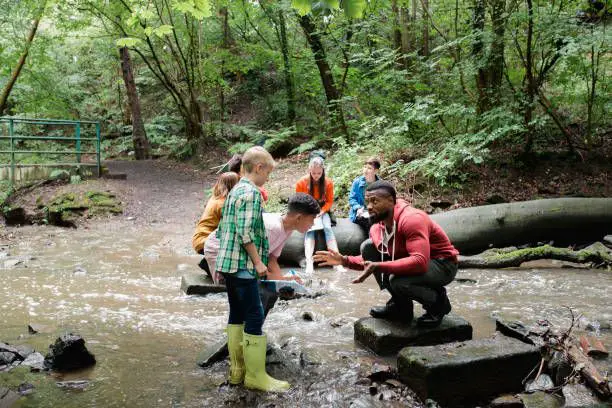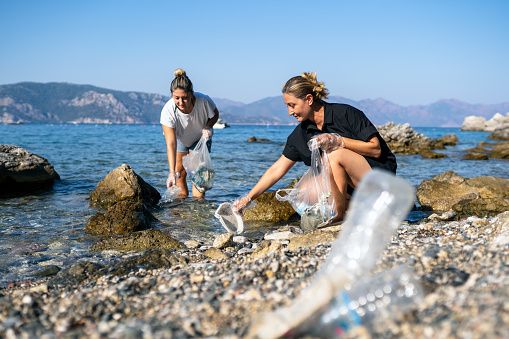Things You Can Do If You Are Stranded On a Vacation

Going on a vacation is one of the most exciting experiences that anyone can have. However, things can go wrong, and you may find yourself stranded in a foreign place.
Whether it's due to a missed flight, lost luggage, or any other unforeseen circumstance, being stranded on vacation can be a frustrating and overwhelming experience.
However, it's not all doom and gloom. There are many things you can do to make the most of your unexpected stay. In this article, we'll explore some of the things you can do if you find yourself stranded on vacation.
Stay Calm and Assess the Situation

Staying calm and assessing the situation is the first step in dealing with any problem or crisis. When you find yourself stranded on a vacation, it is important to take a deep breath and assess the situation before taking any action.
Ask yourself the following questions:
- What is the reason I am stranded? Is it due to bad weather, flight cancellations, or something else?
- What are my options to get out of the situation? Can I reschedule my flight, book a new accommodation, or find alternative transportation?
- How long will I be stranded? Do I need to make temporary arrangements for accommodation, food, or other necessities?
Once you have a clear understanding of your situation, you can start to take action and make decisions. It is important to stay calm and not panic, as this can lead to making rash decisions that may not be in your best interest.
Remember to keep a positive attitude and look for ways to make the most of your time. Being stranded on a vacation can be an opportunity to explore new places, meet new people, and try new things.
Stay focused on the present moment and stay hopeful that the situation will eventually be resolved.
Contact Your Travel Agency or Airline

If you find yourself stranded on a vacation, one of the first things you should do is contact your travel agency or airline to seek assistance. Here are some steps to follow:
- Check your booking confirmation or itinerary for the contact information of your travel agency or airline. You may also find this information on their website.
- Contact the customer service number provided and explain your situation. Be clear and concise when describing your problem and ask for assistance.
- Listen to the options presented by the customer service representative and choose the one that is most relevant to your situation.
- Be patient and courteous when speaking to the customer service representative. Remember that they are there to help you, and treating them with respect will increase the likelihood of a positive outcome.
- Ask about your options for rescheduling your flight or changing your travel arrangements. Your travel agency or airline may be able to offer you alternative flights or accommodations.
- Take notes during the conversation, including the name of the representative you spoke with, the time and date of your call, and any confirmation numbers or reference codes provided.
- Follow up with your travel agency or airline regularly to ensure that your issue is being addressed and that you receive any updates or information in a timely manner.
Remember, your travel agency or airline is there to assist you in the event of any issues or problems during your vacation. Don't hesitate to reach out to them for help if you need it.
Find Temporary Accommodations

If you are stranded on a vacation and unable to return to your original accommodations, finding temporary accommodations is important for your safety and comfort. Here are some steps you can take to find temporary accommodations:
- Check with your travel agency or hotel: If you booked your vacation through a travel agency or hotel, contact them for assistance in finding temporary accommodations. They may be able to recommend nearby hotels or help you find alternative accommodations.
- Use online booking sites: Websites such as Booking.com, Expedia, and Airbnb can help you find temporary accommodations in your current location. You can search for hotels, vacation rentals, or other types of accommodations in your desired location and price range.
- Contact local tourist offices or visitor centers: Local tourist offices or visitor centers can provide you with information on nearby hotels, hostels, or other types of temporary accommodations.
- Ask for recommendations: Ask locals or other travelers for recommendations on affordable and safe temporary accommodations in the area.
- Consider the cost and location: When choosing temporary accommodations, consider the cost and location. Choose a location that is safe and convenient, and that fits within your budget.
- Be prepared to pay for the accommodations: Keep in mind that you may need to pay for your temporary accommodations out of pocket. Be prepared to have funds available to cover the cost.
Remember to stay safe and comfortable during your stay in temporary accommodations. Keep your belongings secure, and follow local safety guidelines and regulations.
Explore the Local Area

If you are stranded on a vacation, exploring the local area can help you make the most of your time and enjoy the experience. Here are some steps you can take to explore the local area:
- Research local attractions: Research local attractions, landmarks, and activities in the area. Use travel guides, tourism websites, or online reviews to get an idea of what the area has to offer.
- Ask locals for recommendations: Ask locals for recommendations on things to do and places to see in the area. Locals can provide valuable insights and recommendations on hidden gems and off-the-beaten-path attractions.
- Take a walking tour: Walking tours are a great way to explore the local area and learn about its history and culture. Look for guided tours or self-guided walking tours that take you through interesting neighborhoods or landmarks.
- Visit local markets: Visiting local markets is a great way to experience the local culture and cuisine. Look for farmer's markets, street markets, or flea markets in the area.
- Try local food: Trying local food is an important part of experiencing the local culture. Look for local restaurants, street food vendors, or food markets that offer authentic local cuisine.
- Attend local events: Check local event calendars for festivals, concerts, or other events in the area. Attending local events is a great way to experience the local culture and meet locals.
Remember to stay safe during your explorations. Follow local safety guidelines and regulations, and take precautions to protect your belongings. Keep your travel documents, money, and valuables secure at all times.
Meet New People

If you are stranded on a vacation, meeting new people can help you make the most of your time and have a memorable experience. Here are some steps you can take to meet new people:
- Stay in a social accommodation: Look for accommodations that have common areas, such as hostels or bed and breakfasts. These types of accommodations often provide opportunities to meet other travelers.
- Join local tours or activities: Joining local tours or activities is a great way to meet like-minded people who share your interests. Look for tours or activities that interest you, such as hiking, cooking classes, or cultural tours.
- Attend local events: Attending local events is a great way to meet locals and other travelers. Look for festivals, concerts, or other events in the area.
- Use social media: Use social media to connect with other travelers in the area. Join travel groups or use hashtags to find other travelers who may be interested in meeting up.
- Visit local cafes or bars: Visiting local cafes or bars is a great way to meet locals and other travelers. Strike up a conversation with someone who seems friendly, or ask the bartender for recommendations on things to do in the area.
- Take a language class: Taking a language class is a great way to meet locals and other travelers who are interested in learning the local language.
Remember to be friendly and approachable when meeting new people. Respect cultural differences and be open to learning about different perspectives and experiences. Be safe and take precautions to protect your belongings and personal information.
Learn a New Skill

If you are stranded on a vacation, learning a new skill can be a great way to make the most of your time and have a memorable experience. Here are some steps you can take to learn a new skill:
- Take a class: Look for classes in the area that teach a skill you are interested in, such as cooking, dance, or painting. Check local community centers, recreation centers, or adult education programs for classes.
- Hire a local guide: Hire a local guide to teach you a skill or show you around the area. Look for guides who specialize in activities or skills that interest you.
- Attend workshops or retreats: Attend workshops or retreats in the area that focus on a particular skill or activity. Look for retreats that offer instruction, practice, and a chance to connect with others who share your interests.
- Volunteer: Volunteering can be a great way to learn a new skill while also giving back to the community. Look for volunteer opportunities in the area that allow you to learn a new skill or contribute to a cause you care about.
- Take online courses: Look for online courses or tutorials that teach a skill you are interested in. Many websites offer free or low-cost courses on a variety of topics.
Remember to have fun and be patient when learning a new skill. Take your time and enjoy the process of learning something new. Be safe and take precautions to protect your belongings and personal information.
Volunteer

If you are stranded on a vacation, volunteering can be a great way to make a positive impact, meet new people, and have a memorable experience. Here are some steps you can take to volunteer:
- Research local organizations: Research local organizations that align with your interests and values. Look for organizations that focus on causes such as animal welfare, environmental conservation, education, or community development.
- Contact local nonprofits: Contact local nonprofits to inquire about volunteer opportunities. Many organizations have volunteer coordinators who can provide information on available positions and the application process.
- Participate in community service events: Look for community service events in the area, such as beach cleanups or neighborhood beautification projects. These events provide opportunities to meet locals and make a positive impact.
- Work on a farm or ranch: Look for opportunities to work on a farm or ranch in the area. These opportunities can provide a chance to learn about local agriculture, connect with nature, and make a positive impact.
- Teach English: If you speak English fluently, look for opportunities to teach English as a second language in the area. Many schools and community centers offer English classes for non-native speakers.
Remember to be respectful of cultural differences and to follow local laws and customs when volunteering. Be prepared to work hard and to take precautions to protect your belongings and personal information.
Relax and Unwind

If you are stranded on a vacation, taking the time to relax and unwind can be just what you need to recharge and enjoy your time. Here are some steps you can take to relax and unwind:
- Find a quiet spot: Look for a quiet spot where you can relax and unwind, such as a park, beach, or quiet cafe. Take some time to enjoy the scenery and breathe in the fresh air.
- Read a book: Reading a book is a great way to escape into another world and relax. Look for a book that interests you, or ask locals for recommendations on books that are set in the area.
- Practice yoga or meditation: Practicing yoga or meditation can help reduce stress and promote relaxation. Look for yoga classes or meditation groups in the area, or use an app or video to guide your practice.
- Get a massage: Getting a massage can help release tension and promote relaxation. Look for a local spa or massage therapist in the area.
- Take a nap: Taking a nap can help you recharge and feel refreshed. Look for a quiet spot where you can take a nap, such as a park or beach.
Remember to take the time to relax and unwind, and to listen to your body's needs. Be safe and take precautions to protect your belongings and personal information.
Plan Your Next Trip

If you are stranded on a vacation, using the time to plan your next trip can be a great way to stay positive and excited about future travel opportunities. Here are some steps you can take to plan your next trip:
- Research destinations: Research destinations that you are interested in visiting. Look for information on the best time to visit, popular attractions, and local customs.
- Create a budget: Create a budget for your trip, including expenses such as transportation, accommodations, food, and activities. Use travel websites and apps to estimate costs.
- Choose a travel style: Choose a travel style that suits your interests and budget. Consider options such as backpacking, luxury travel, or cultural immersion.
- Make a travel itinerary: Make a travel itinerary that includes your transportation, accommodations, and activities. Look for local tours and activities that suit your interests.
- Book your trip: Book your trip once you have a clear idea of your destination, budget, and travel itinerary. Look for travel deals and promotions to save money.
Remember to be flexible and open to new experiences when planning your next trip. Take the time to research and plan, but also leave room for spontaneous adventures. Be safe and take precautions to protect your belongings and personal information.
Keep a Positive Attitude

Keeping a positive attitude is important when you are stranded on a vacation, as it can help you stay calm and focused on finding a solution to your situation. Here are some steps you can take to maintain a positive attitude:
- Focus on the present moment: Rather than dwelling on the past or worrying about the future, focus on the present moment. Take deep breaths, and remind yourself that you are safe and capable of finding a solution.
- Practice gratitude: Take the time to appreciate the positive aspects of your situation, such as the natural beauty of the area, the kindness of locals, or the opportunity to learn something new.
- Stay connected with loved ones: Reach out to family and friends for support and encouragement. They can provide a listening ear and help you stay positive.
- Laugh and have fun: Finding ways to laugh and have fun can help you stay positive and boost your mood. Look for local events or activities that interest you, or spend time with new friends.
- Stay active: Staying active can help you feel better both physically and mentally. Look for opportunities to exercise, such as going for a walk or run, or taking a yoga class.
Remember that staying positive takes effort, but it is worth it. By maintaining a positive attitude, you can better handle the challenges that come your way and enjoy your time, even if things don't go as planned.
Conclusion
While being stranded on vacation is never ideal, it doesn't have to be a complete disaster. By staying calm, assessing the situation, and taking advantage of the opportunities that come your way, you can make the most of your unexpected stay.
From exploring the local area to learning a new skill, there are many things you can do to turn a frustrating situation into a memorable experience. So, the next time you find yourself stranded on vacation, remember to keep a positive attitude and make the most of your unexpected stay.
